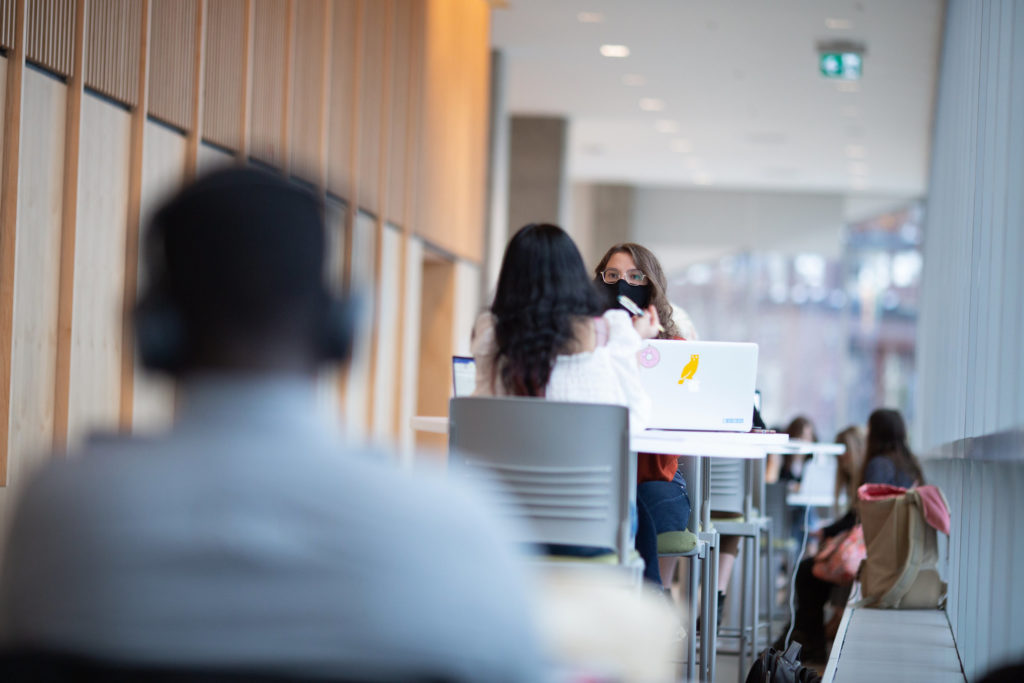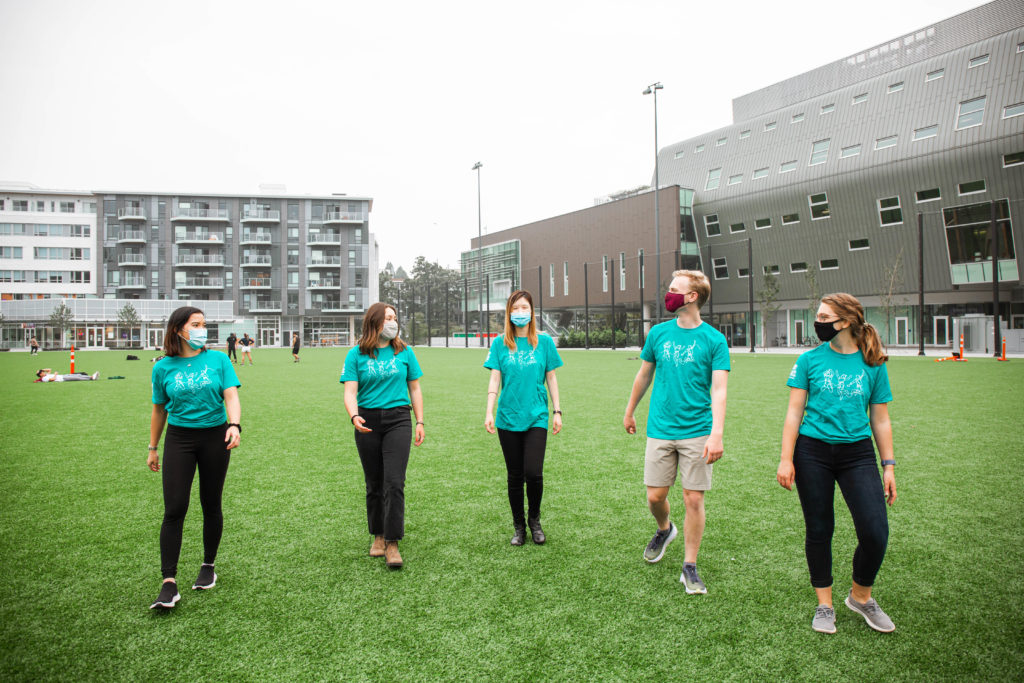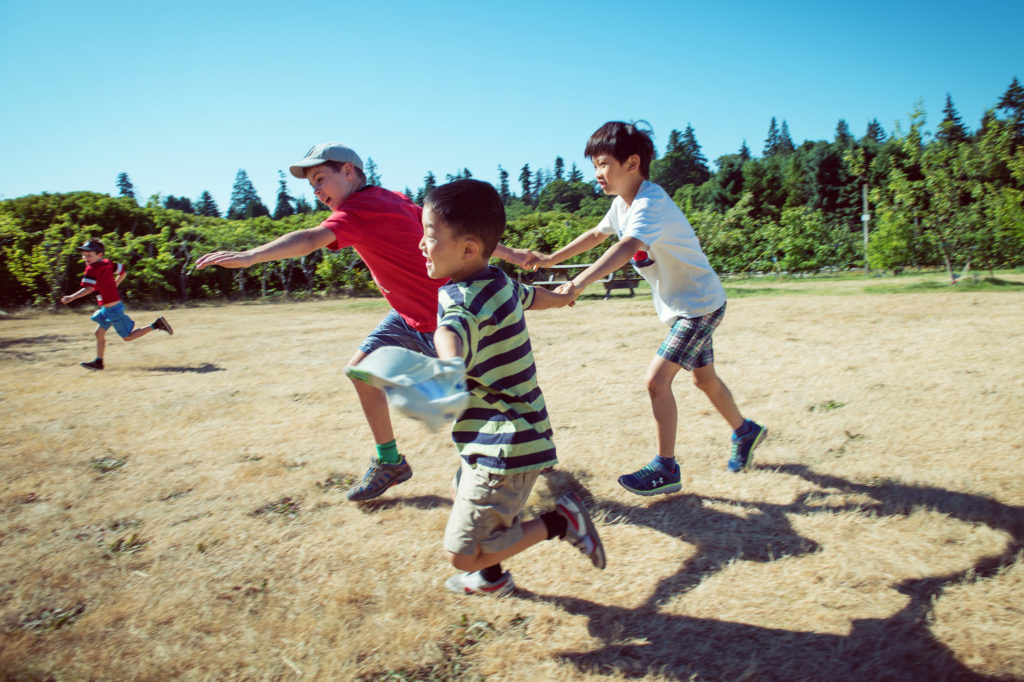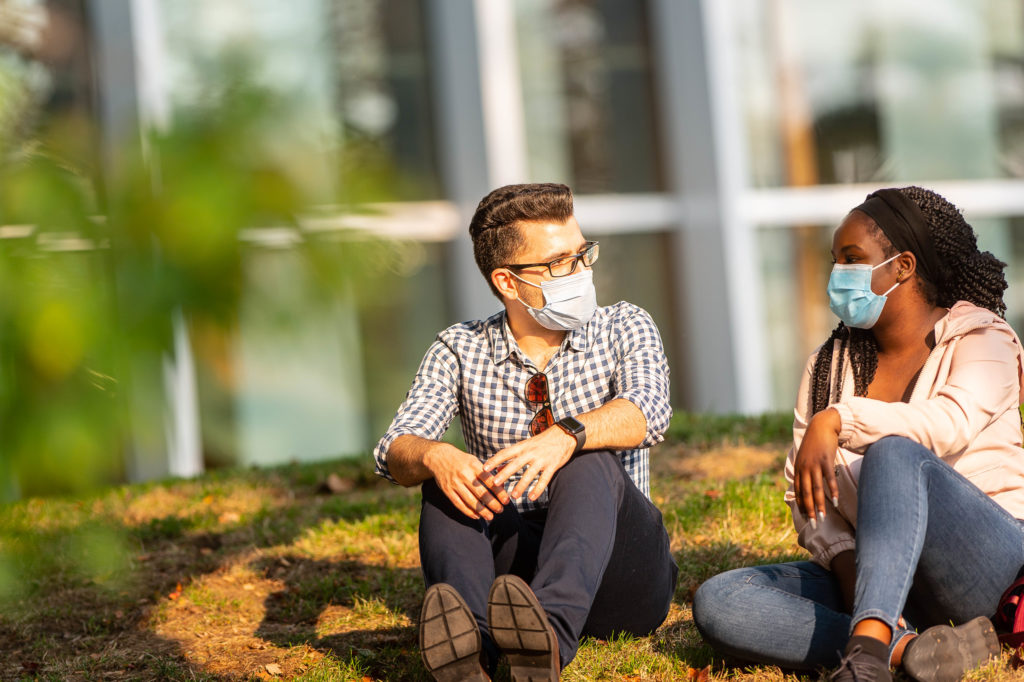
Since launching the Wellbeing Strategic Framework in 2019, UBC’s shared vision of being a health and wellbeing-promoting university is more important than ever in the face of complex societal challenges, including the global pandemic, climate emergency, colonization, and systemic racism.
In a year made more complex by the COVID-19 pandemic, groups and community members across UBC worked together to advance the Okanagan Charter and Wellbeing Framework’s targets, and to help create communities on campus where health and wellbeing for all is championed.
This year, we focused on implementing wellbeing efforts through an intersectional lens to explore and address interconnected societal challenges in a unified way. Please read below for select highlights from this year’s Wellbeing annual report, or visit the Wellbeing website to read the full report.
Mental Health
Intersectional Approaches to Mental Health

In response to increased levels of anxiety and mental health challenges, paired with the rapid switch to remote work for faculty and staff over the course of the COVID-19 pandemic, the Workplace Wellbeing team adapted quickly to support the mental health of the staff and faculty community, including the development of a new resource: “Intersectional Approaches to Mental Health – A Facilitator’s Guide”. This guide offers an intersectional approach to support mental health literacy and capacity building from a place of inclusion and diversity.
Collaborative Leadership
Embedding Wellbeing in Learning Environments

Leveraging the Charter was an international, multi-solving event, co-hosted with McGill, Waterloo, and the Canadian Public Health Network to strengthen the understanding of the Okanagan Charter and explore challenges exacerbated by the pandemic.
Through a multisolving lens to find “solutions to the interconnected problems facing the climate and human society,” over 250 participants helped tackle issues of health and wellbeing in the context of the pandemic, systemic racism, and climate emergency crisis. Learn more about Leveraging the Charter.
Physical Activity
Diverse Community, Diverse Programming

Diversity, equity, and inclusion remain at the forefront of planning processes, policies, and programs for the Office of Physical Activity. Guided by the Equity and Inclusion Office’s new Inclusion Action Plan, their office strives to reach the second physical activity target of “Diverse Community, Diverse Programming” in hopes to see a 10% increase in UBC community members’ satisfaction with recreation facilities and programs by 2025.
The Office of Physical Activity partners with various associations, clubs, and organizations to meet the needs of our diverse population. This year’s highlights included a BIPOC Lunch & Lift, Graduate Student Society virtual classes, and a growing partnership with the Sexual Violence Prevention & Response Office to host an Online Healing Centered Yoga class for survivors and allies to also create safe spaces for physical activity.
Food & Nutrition
Increasing Student Access to Affordable Food: UBC Meal Share Pilot Program

The Food Security Initiative (FSI) launched the UBC Meal Share pilot with the support of donors to the Student Wellbeing Fund to ensure students have access to food.
At UBC Vancouver, 96 students were provided funds to purchase food via their UBC card, ensuring a low barrier and discrete access to minimize food insecurity. Next year, the program will be launched at both campuses to support more students. support more students. Learn more about UBC Meal Share.
Built & Natural Environments
Expanding UBC Vancouver Child Care Services

UBC is committed to expanding childcare services for families who live, study and work on campus. The Child Care Expansion Plan (CCEP) provides a framework to deliver on UBC’s childcare policy commitments, addressing long-range institutional needs and neighbourhood childcare demands on UBC Vancouver’s Point Grey Campus.
As of January 2021, there were 763 childcare spaces and 237 out-of-school care spaces. The CCEP aims to create an inventory of approximately 1,200 spaces by 2041, with a focus on delivering more childcare spaces for children under three years of age.
Social Connection
Building a Community of Care

While the pandemic brought many challenges that limited the ability to gather in person, we were inspired by the compassion, connection, and creativity demonstrated by the UBC community over the past year and the ways in which they have supported one another by sharing their skills and talents through community programming and initiatives.
A special “Community of Care” grant program, launched by the Campus + Community Planning Programming team, provided funds to projects that shared skills online, provided care packages to vulnerable community members and other ways to foster social connections while socially distanced. Community members rose to the challenge with great project ideas including sewing and distributing free homemade face masks, building a rainbow picnic table for community members to enjoy, a social-justice-focused book club, a postal art project that connected youth in campus neighbourhoods together as pen pals, and more.
Visit the UBC Wellbeing Annual Report to see all the community highlights from this year’s report, or download the UBC Wellbeing Annual Report 2020-21- Infographic.
Through Strategy 3: Thriving Communities, UBC is committed to advancing sustainability and wellbeing through renewal and innovation in our learning environments, operations and infrastructure.